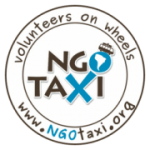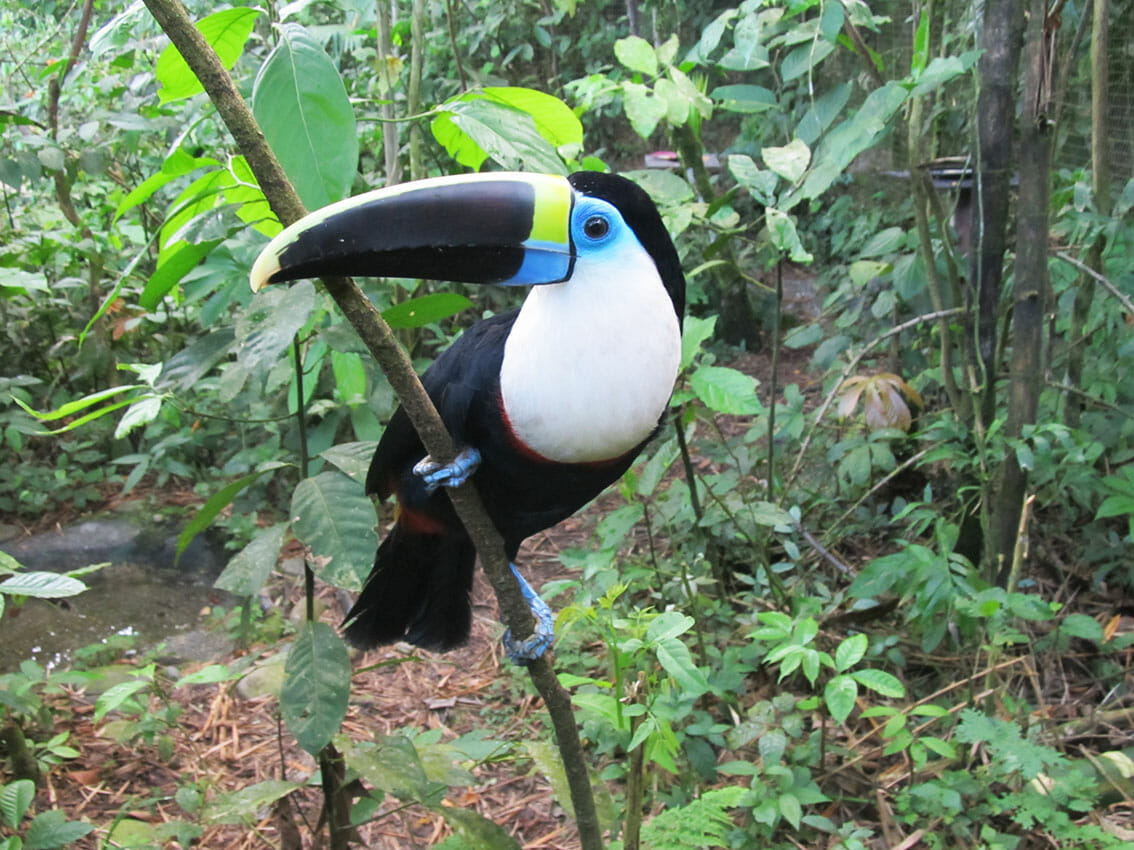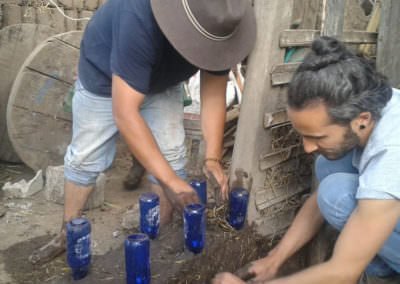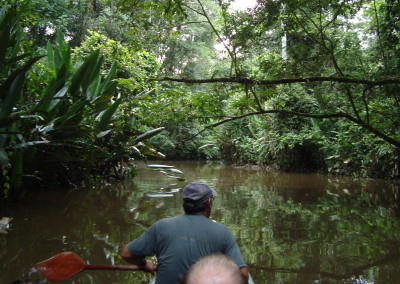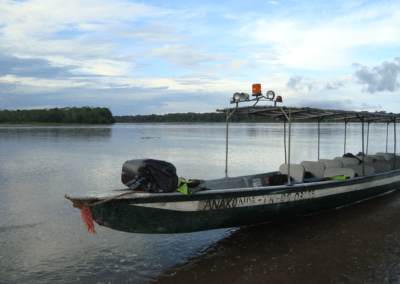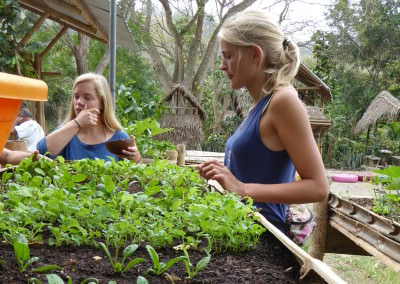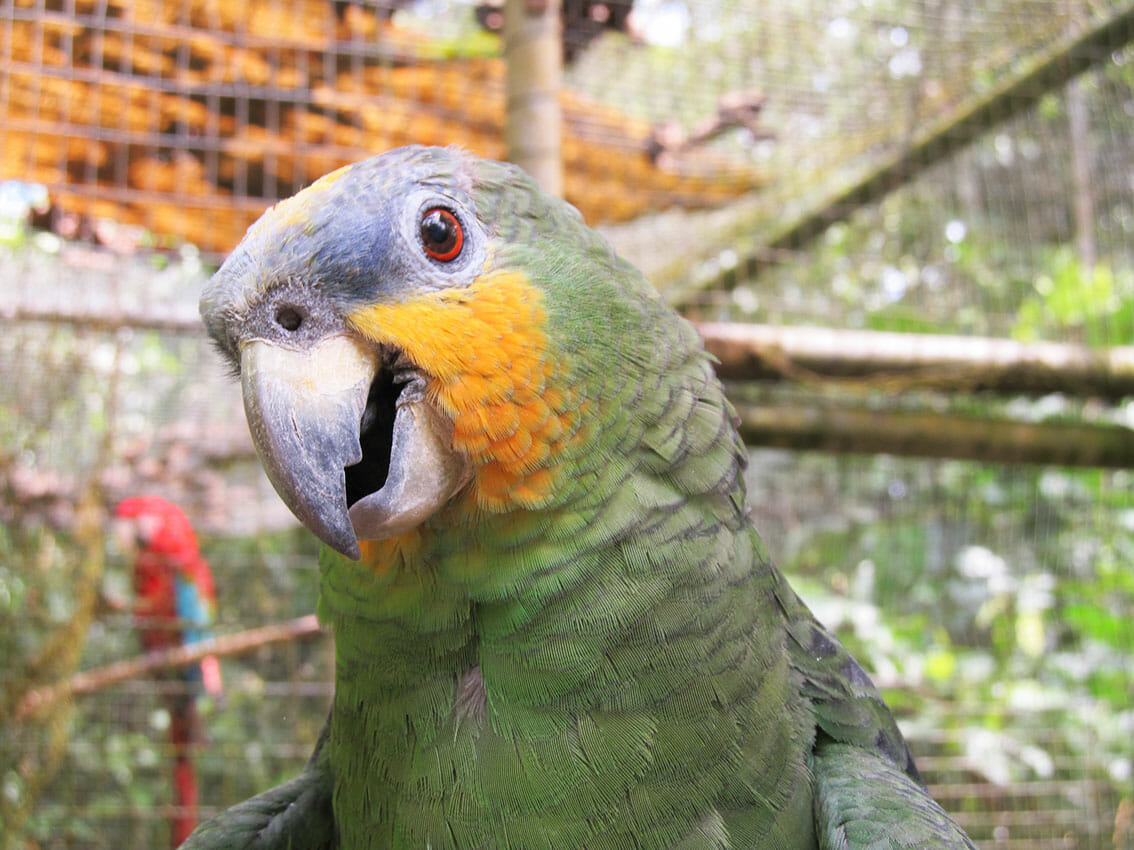
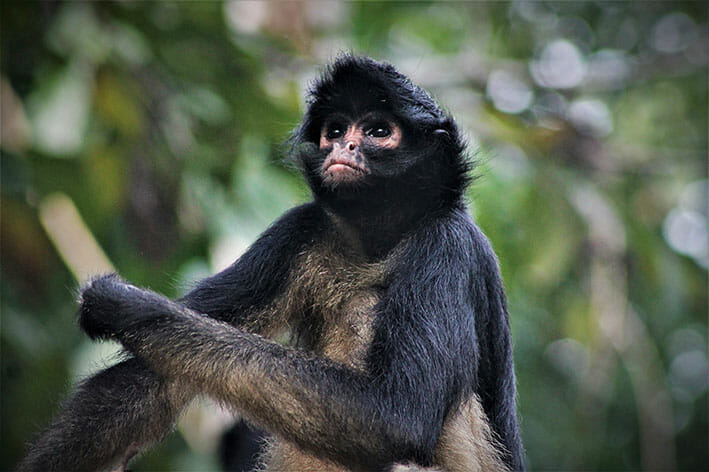
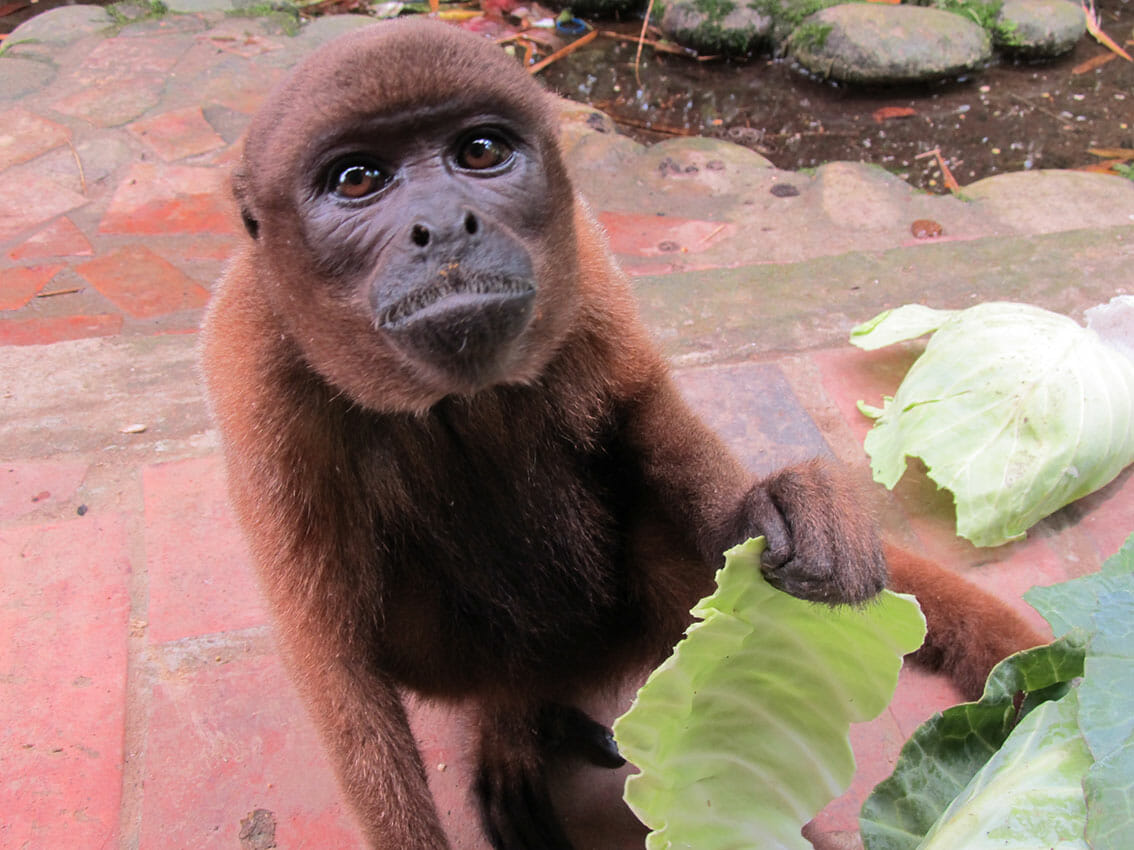
Rescue Center For Trafficked Animals (Amazon Rainforest Ecuador)
Volunteer with an Exotic Animal Rescue Center in the Ecuadorian Amazon and join the fight against widespread illegal animal trafficking! This dedicated center rescues and rehabilitates trafficked animals with the goal to safely release them back into the wild.
Volunteer responsibilities are varied and include interaction with the center’s ‘furry guests’ as well as general maintenance and visitor education. So if you want to create long-term positive change in the lives of these abused animals, while exploring the world’s most famous rainforest then read on. This program is now open and accepting volunteers!
Pricing
Official Camp dates:
Start dates every 1st/3rd Sunday of the month
€ 1349,00 – 1st month
€ 1299,00 – 2nd month
€ 1249,00 – 3rd month, and after
Individual camp dates:
+ € 150,00 – Start your placement any Sunday of the month
+ € 250,00 – Chose your own start dates and change them up to 3 times before your trip.*
*Last date change up to 3 weeks before your departure.
SAVE ILLEGALLY TRAFFICKED ANIMALS IN THE AMAZONIAN JUNGLE!
Included Services
- Food and accommodation.
- Pickup from and return to airport in Quito.
- Pre-arrival pack.
- Welcome dinner.
- Complementary t-shirt.
- FREE 20 hour intensive Spanish course.
- Transport to project site into and out of Amazon rainforest (see transportation).
- 24 hour support.
DETAILS
Project Description
Challenges
Ecuador boasts one of the highest rates of illegal animal trafficking in South America, despite being one of the smallest countries on the continent. In 2014, the official number of trafficked animals confiscated by authorities within the past decade was approximately 8,000. This does not include the number of animal deaths during illegal transit, and therefore only reflects a small percentage of the actual deaths.
The majority of exotic animals are taken from their natural rainforest habitat in order to be sold on the domestic or international market. Reptiles are most at risk from trafficking, followed by mammals and birds, but traffickers also capture fish and insects.
Traffickers prey on jungle wildlife because the industry is the fourth most profitable illegal activity in the world. Most animals are sold as pets, but there are many more that are sold for their furs or skin, or to be included as ingredients in various local ‘medicines’. Although trafficking is now officially recognized as a “crime” in Ecuador, it is still big business within the country. If the animals are ‘in demand’ exploitation of the species often occurs: this impacts the balance of the local ecosystem and the lives of local human inhabitants who rely on a small number of them for food, clothing or resources. Unfortunately, wild animals sold as pets can become aggressive and are often abandoned, mistreated or neglected.
Solutions
Over recent decades, many not-for-profit rescue centers have opened within Ecuador with the aim to rehabilitate, care for, and release back into the wild any captured or mistreated exotic animal that comes through their doors. Although wildlife trafficking is now officially an illegal activity, the law can be hard to enforce, especially in the more remote regions of the Amazon, and therefore these small centers and shelters are at the forefront of the fight against illegal trafficking. We need your help to keep these centers operational, to help them grow, and to educate both the local and international communities on the plight of these defenceless animals. With a shared community vision we can stop this cruel and unjust industry once and for all, preventing animals from experiencing the terrible fate of their predecessors.
Volunteer Responsibilities
- Help with the preparation and distribution of the animals’ food on a daily basis.
- Help clean the animals’ cages on a daily basis.
- Assist with constructing and/or maintaining cages when necessary.
- Occasionally assist with the health treatment of the animals (contact with animals must be minimal to prepare for the wild).
- Monitor their health and general welfare.
- Help keep the compound clean.
- Assist with monitoring tasks by filing reports for NGO Taxi.
- Maintain a diary of your time with the project (including photos and blog/ experience report)..
- Obtain daily provisions, run errands and other administrative tasks.
Program Objectives
- Work “hands-on” with exotic animals under the professional care of the center..
- Learn about methods used to rehabilitate different species of animals.
- Nurse “back to health” and “care for” mistreated, neglected or abandoned animals that have been the victims of trafficking.
- Rehabilitate animals and re-educate them on how to survive in the wild: while correcting maladaptive behavior.
- Release animals back into the wild and give them a second chance in life.
- Educate both the local population and visitors on issues surrounding illegal trafficking, describe how others can help.
- Create a long lasting bond between the environment and the community.
The exact responsibilities will depend on the current needs and priorities of the project as determined by the Project Manager and NGO Taxi Management. So the tasks listed above are examples only.
Working Hours
You will work from Monday to Friday 7am-12pm and again between 2.30pm-5pm. However, please bear in mind that flexibility is needed, and in special situations volunteers may be required to lend-a-hand outside of these hours. During the evenings and weekends you are free to explore the surrounding area, and get a true taste of Amazonian life!
Location
The center is located about 2-hours from the nearest large town where you can find supermarkets, banks, a hospital, internet cafes and laundry services. Be aware however, that due to the local climatic conditions, public transport is often disrupted or delayed.
Transportation
Accommodation and Food
Prerequisites
Professional Requirements
As a volunteer you don’t need any professional requirements, since you will be supervised by the centers technicians and professionals at all times. However we do require that you have a sincere desire to help animals, a genuine commitment to the project, and a hard-working attitude. Minimum stay is four weeks.
You also need to be in reasonable physical condition as the work generally takes place outdoors and can be labor-intensive (e.g. building cages). This project really is an excellent opportunity to learn more about indigenous jungle wildlife, as well as giving you lots of experience with animal care, veterinary studies, biology and environmental science.
While working on this project you will be required to work within teams, undertaking many tasks, therefore collaboration and autonomy are encouraged. It’s also a great chance to learn more about the local community by working alongside them every day. Within South America, you should be ready to respond to changes and deal with the unexpected every day.
Additional Information and Specials
Language Requirements
It is preferred that you have advanced English skills, although your Spanish skills can be basic. Staff at the center also speak some French and German. However, talking to workers and the local community will enrich your experience and teach you more about Amazonian culture. A foreign language always helps with career prospects, therefore we encourage you to speak at least some Spanish. Have a look at our ‘Spanish Language Courses’ to combine both.
Additional Information & Specials
Please note that within the Exotic Animal Rescue Center we frequently see monkeys, parrots, turtles and jaguars, so these will be the animals you work with on a regular basis.
Minimum Age
18.
Length of Stay
At least four weeks.
Start Date
1st and 3r Sunday of the month.
Immunizations
Since you’ll be coming into contact with exotic wildlife, it’s essential that you have all the relevant and current immunizations. This includes yellow fever (certified), tetanus, typhoid, diphtheria, hepatitis A & B and rabies. You’ll receive detailed information on the required immunizations for Ecuador, as well as your Personal Preliminary Documentation following your successful application with NGO Taxi.
You can inquire in advance about immunization requirements by consulting medical authorities in your country of origin. For example in the US contact Centers for Disease Control and Protection.
http://wwwnc.cdc.gov/travel/destinations/traveler/none/ecuador.
Please make sure you are fully protected with up-to-date vaccinations before heading to South America. (see our recommended list above). NGO Taxi are not responsible for providing vaccinations to their volunteers, it is the sole responsibility of the volunteer to ensure that they have researched up-to-date medical advice in advance.
Included Services
- Accommodation in the volunteer house.
- Three meals a day.
- Personalized assistance with finding accommodation in Quito and beyond.
- Pickup from the airport.
- Pre-arrival ‘welcome pack’.
- 24-hour support..
- Certificate
- Free T-Shirt.
- Welcome dinner.
Excluded Services
- Non-organized or weekend activities.
- Snacks and non mealtime drinks.
- Travel insurances.
- Personal spending.
- Any additional items not listed in the ‘Included Services’ list.
Sometimes you will be part of a small group of volunteers within the project, whereas other times there may be larger groups, so be prepared for plenty of variety in your experiences and the types of people you meet and work with. </style=”font-weight:>
Why not volunteer with your best friend?
Tell us who you want to volunteer with and we will arrange everything for both of you!
Free Time Activities
Orellana, Ecuador
SAVE ILLEGALLY TRAFFICKED ANIMALS IN THE AMAZONIAN JUNGLE!
Join our adventure and learn Spanish before you volunteer
